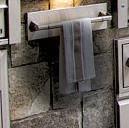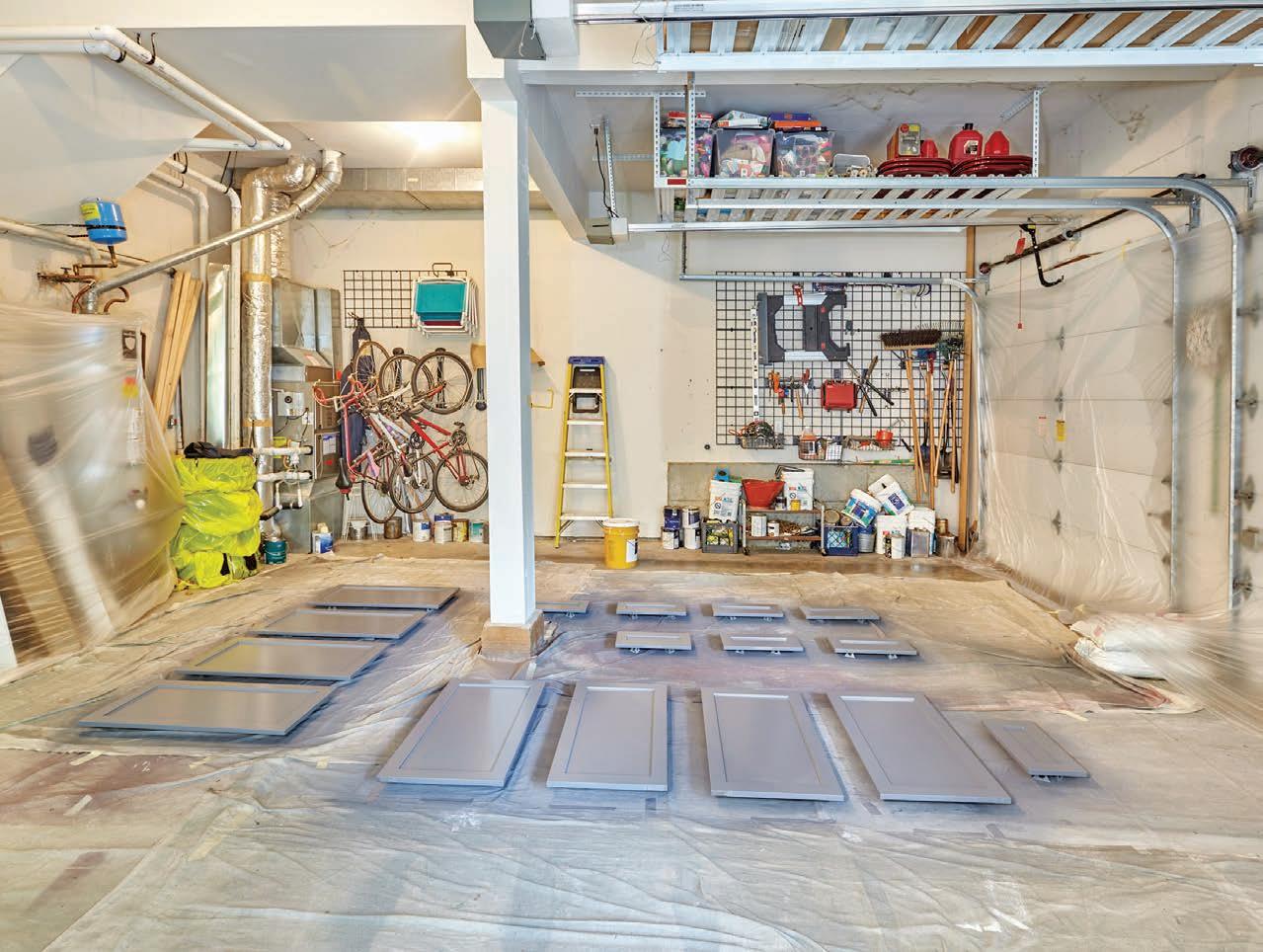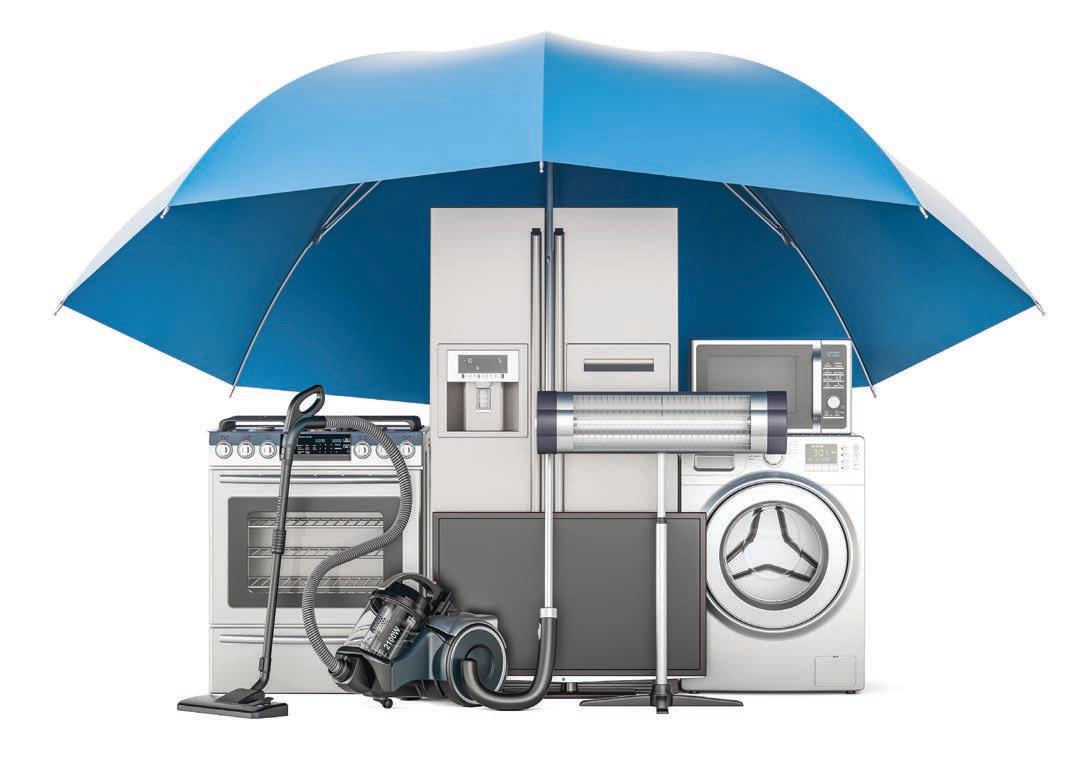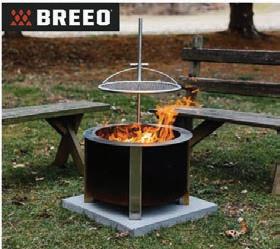

























The Growing Zones Are A Temperature Minimums For Your Area, Ranging From the Coldest — 1a, or -60 To -55 Degrees Fahrenheit — To 13b, or 65 To 70 Degrees Fahrenheit.
Each Zone Represents the Mean Extreme Minimum Temperature — Meaning It’s the Average Coldest Temperature. It Does Not Mean That That’s the Coldest It’s Ever Been or Ever Will Be. You Should Still Prepare For Somewhat
Colder Temperatures Than What Is Shown On the Map.
FINDING YOUR ZONE
You Can Find Your USDA Growing Zone By Going To the Interactive GIS Map At Planthardiness.ars.usda. gov and Entering Your ZIP Code. If You Don’t Have A Broadband Internet Connection, You Can Also Find Static Images That Will Load Better On Your Connection. Experts At Your Local Garden Center or
Agricultural Extension office Will Also Be Able To Tell You Your Hardiness Zone.
MEANS NEW ZONES
This Is the First Time the USDA Has offered the Upgraded GIS Map, and It’s Been Updated With Data From 1976-2005. GIS Technology Has A Higher Level of Resolution and Can Show Smaller Areas of Zone Definition Than Previous
Iterations of the Map. It May Show, For Example, A Warmer Zone Around A Larger City Because Cities Tend To Hold More Heat Than Rural Areas or A Cool Spot Around A Hill and Valley.
The New Map Also Has New Zones. Zones 12 and 13 Have Annual Extreme Minimum Temperatures Above 50 and 60 Degrees, Respectively. You Can Find these Zones In Hawaii and Puerto Rico. Even Though these Zones Do Not Include A Freeze, they Will Enable Gardeners In these Areas To Plan For Conditions To Suit Tropical and Semitropical Plants.
What You Shouldn’t Use the Zones Map For Is Any Evidence of Climate Change. Climate Changes Usually Show Up In Records For 50 Years or More. Because the Zone Map Uses 30 Years of Data, It Shouldn’t Be Considered Reliable Evidence of Whether or Not there Is Global Warming.




Finding Qualified Help With A Home-improvement Plan Can Be Almost As Hard As Completing the Project Itself. Here’s How To Find A Reliable Contractor.

WHY YOU NEED ONE Contractors Are In Charge of the Overall Operation of Your Renovation Project, Including Selecting Products and the Hiring of Subs To Handle Things Like Hanging Cabinets, Retiling Floors and Knocking Down Walls. It’s Far, Far Too Much To Oversee By Any Weekend DIYer. They’ll Also Have Specialized Expertise In Things Beyond the Work, Like Your Local Town’s Permitting Process. But their Role Is About More Than Nuts and Bolts. These Kind of Projects Can Be Very Stressful Since Unexpected Detours Are So often A Part of Things. The Right Contractor Can Help You Navigate Through Bumps In the Road Like Bad Writing or Rotten Subfloors, Keeping Your Budget Under Control — and Your Sanity In Place.
WHAT
Begin With Recommendations From Friends, Family and Co-workers, then
Check References and Online Reviews. Employees At Area Hardware Stores May Also Be A Great Resource For Referrals. Dig Deeper Into Licensing, and the History of Complaints or Litigation. Review Reports From the Better Business Bureau and Your State Disciplinary Boards. Ask About Timeframe Availability, and What Work Will Be Done By Subcontractors. Verify Insurance. Request An Estimate, Keeping In Mind That You’ll Get the Most Accurate Numbers By Being As Specific As Possible About What the Job Entails and the Exact Materials You’d Like To Use. Experts Recommend That You Interview At Least Five Candidates Before Deciding.
The Contract Should Detail Exactly What’s To Be Done, Including Payment Schedule, Overall Deadlines and Materials. If Your Contractor’s Agreement Isn’t As
Detailed As You’d Like, Feel Free To Make Your Own Addendums. Once You’ve Signed, Remember That Availability Will Depend On A Variety of Considerations Outside of Your Control — Including Other Work Responsibilities and the Time of Year. It’s their Job To Secure Proper Permitting, But Double Check That It’s In Place. Never Pay More Than 10% of the Total Agreed-upon Price Before the Work Starts.
Make Sure Workers Follow A Specific Agreed-upon Schedule For Work Hours. Talk To the Contractor Frequently, Whether there Is A Pending Change order or Not, So That You Always Know Where the Project Stands. Don’t Make A Final Payment Until the Job Has Been Completed, and All Punch-list Items Have Been Dealt With.






















Spring Is A Great Time To Get Growing Again, and That Includes Laying A Strong Foundation In Your Garden. Mulch Is Probably Part of Your Gardening Plan and, If It Isn’t, It Should Be. Mulch Helps Control Weeds, Enriches Soil, Improves Moisture Retention and Adds Visual Appeal To Your Gardens and Flower Beds.
You Should Lay Your Mulch In the Spring After You’ve Gotten Your Spring Plants In. It’s the Icing On Your Gardening Cake. In Autumn and Winter, You Lay Mulch To Keep Plants From Shifting and To Protect Tender Plants From Colder Temperatures. You Can Also Mulch Around Trees or Other Things In Your Yard To Add Visual Appeal. When the Mulch Has Fully Decomposed Into the Ground, It’s Time To Replenish and Refresh.
There Are Many Types of Mulch To Use In Your Gardens, Including Wood Bark, Wood Chips, Plastic Sheeting, Rubber Mulch Compounds, Colored Woods, Pine Straw, Grass Clippings, Manure and Newspaper. You Want To Choose A Mulch That Works Well In Your Environment and In A Color That Compliments Your Landscaping and Your Home. Dyed Mulches Should
Be Kept Dry For At Least 24 To 48 Hours To Keep From Staining Hard Surfaces Around them.
WORKING WITH MULCH Wear Gardening Gloves To Protect Your Hands From Dyes and Splinters. You Should Also Wear Old, Comfortable Clothes That You Won’t Mind Getting Dirty. You Might Also Choose To Wear A Face Mask If You’re
Prone To Allergies. Move the Mulch With A Wheelbarrow or Cart and A Shovel, Making Sure To Lift With Your Knees and Not With Your Back. Rake the Mulch Into An Even Layer.
MAINTAINING MULCH
If You See Mold On Your Mulch, Turn It Gently and Spread It Evenly Again. All the Surfaces Should Be Exposed To Air and Light.
As the Mulch Dries, the Mold Should Go Away. If You See Weeds Sprouting Through the Mulch, Remove them By Hand or Use A Weed and Grass Killer For Large Patches. Sun and Rain Will Fade and Deteriorate Your Mulch — That’s Partially What organic Mulches Are Meant To Do To Enrich the Soil. Turn It Gently To Keep It Looking Fresher Longer.








But there’s A Lengthy Process Involved Entering This Field, and they Ultimately End Up Varying Skill Sets. Here’s What You Should Know Before You Hire A Carpenter.
Finding A Carpenter Who Meets Both Your Needs and Budget Can Be Difficult. Understanding the Training and Qualifications That Go Into This Career May Help With the Decision-making Process. Many Learn the Ins and Outs of This Trade In Community College, A Trade School or High-school Shop Courses, Though A Degree Is Not Required. Others Serve Apprenticeship By Assisting More Seasoned Pros In the Business. Testing Provided Through the United Brotherhood of Carpenters and Joiners of America Leads To official Journeyman Status.
The Next Step, After A Lengthy Period As A Journeyman, Is Master Carpenter, An Informal Designation Meant To Acknowledge the Expertise To Perform Almost Any Job. Master Carpenters Will Charge More Per Hour Than Journeymen.
Hiring An Unlicensed Carpenter Is Illegal In Some States. Though the United Brotherhood of Carpenters and Joiners of America Has A Standard For Potential Journeymen, Each State May Set Its Own Criteria. Valid Licenses Indicate That Your Carpenter Has State-required Bonding and Insurance, A Critical Protection For Customers. Ask Your Prospective Carpenter About Liability Insurance and Workers Compensation Insurance, In Case Something Goes Wrong On the Site. The Bond Protects You If
the Carpenter Doesn’t Meet the Contract Terms. Quality Carpenters May Also offer A Warranty On the Material and Services Provided. That Would Provide Another Layer of Security.
There Are Different Types of Carpentry, Depending On Customer Needs.
Rough (or Frame) Carpenters Special In Creating Basic Structures So That the Job Is Level, Square and Plumb. Finish Carpenters Complete their
Work, Installing Secondary Items Like Doors, Decks and Roofs. Specialists Who Have Been Trained In More Focused Ways then Follow, Including Cabinet Makers.
Once You’ve Determined Which Is Right For You, Ask About Availability, Not Just For Your Start Date But For A Window of Time. Urgent or Time-sensitive Projects May Require A Different Carpenter. Ask If they Charge An Hourly or Flat Rate, If they Can Provide References and If You Can Get An Estimate In Writing.












If You’re Short On Space In Your Garage, However, Consider Some Creative Storage Options To Maximize Your Storage Space.
SUSPENDED STORAGE
Using the Vertical Space In Your Garage Helps Free Up Floor Space. Anything You Don’t Access On A Regular Basis Can Be Hoisted Up. Look For Bicycle Storage Systems That Use Rope and A Pulley With Hooks Attached At the End To Allow You To Safely Store Your Bikes Overhead. A Similar Pulley System Can Be Used To Elevate A Metal Shelf Where You Can Store Items In Plastic Bins Overhead. If You Have Access To A Ladder, A Fixed Overhead Storage Shelf Is Also An Option.
WALL STORAGE
If You’re Short On Floor Space, Look For Creative Options For Storing Items Such As Bikes, and Sports and Lawn Equipment On the Wall. A Modular Wallmounted Slat Storage System Allows You To Customize Your Storage
Can Do the Job.


For Your Particular Items. Add Hooks, Wire Baskets or Shelves To the Slats To Store Items of A Variety of Shapes and Sizes — From A Rake To A Garden Hose To A Bicycle. Even the Inside of Your Garage Door Can Be Made Into Useful Storage Space. Attach Metal Brackets To Hold Light Sports Equipment Such As Fishing Rods Horizontally.
FUNCTION OVER FORM




Of Course You Could Go All-out With A Brand New Customized Garage Storage System, But You Don’t Have To Spend A Lot To Make Your Space Functional. If You’re On A Budget, Consider Hitting the Classified Ads, Yard Sales or A Resale Shop For Garage Storage Options. If You Don’t Mind Less Than Perfect Aesthetics, Look For Quality Items That Might Have Some Cosmetic Defects. The Key Is To Focus On Being Sure the Storage Units You Choose Are Sturdy Enough To Hold Your Items.

The Garage Is A Great Place To Store Household Items When they’re Not In Use. Basic — But Sturdy — Shelving Units
Few Things Are More Satisfying Than Washing off A Coat of Winter Grime With A Power Washer. You Can Use them On Windows, Walls, Pools, Driveways, Walkways, Grills, Outdoor Furniture, Fences, Vehicles, Decks and More. But there Are Some Safety Rules You Should Keep In Mind. Let’s Get Started.
Power Washers Are Either Electric or Gas. The Gas Units Tend To Be More Powerful Than Electric Ones, Delivering Up To 3,000 Pounds Per Square Inch of Pressure. Make
Sure You Match the Material You’re Washing To the Power of Your Equipment. Home Depot Says That Vinyl Siding Can Take Up To 3,000 Psi While Aluminum, Stucco or Softgrain Woods Should Get No More Than 1,500 Psi.
There Are Also A Variety of Wands and Attachments To Make Your Job Easier.
Many Home Stores Will Rent the Power Washing Gear That You Need So
That You Don’t Have To Buy Equipment of Your Own. This Is An Ideal Situation If You’re Going To Do Projects Like Your Home, Driveway and Deck, Say, Once A Year. If You’re Going To Wash Your Vehicles often or

Need To Do Several Jobs A Year, Consider Buying Either An Electric or Gas Washer To Meet Your Needs.
Before You Start Washing, Cover Items Such As Light Fixtures and Air Conditioner Compressors On the Exterior of A Home. Also Cover Any Plants That Are Close To Whatever You’re Going To Power Wash. Make Sure To Note the Locations of
Windows and Electrical Outlets. Cover the Sockets With Tape and Avoid them While Washing. Prescrub the Exterior With A Scrub Brush or Spray It Down With A Garden Hose To Remove Dirt, Debris and Mildew. You Also Want To Don Your Safety Gear Before Turning On Your Power Washer. Use Safety Goggles and Work Gloves. Never Use A Ladder While Power Washing Because the Pressure Could Cause
You To Lose Your Balance. Keep the Power Washer Wand At Least Six Feet Away From Wires. Don’t Spray Into Outlets, Cracks and Holes. Do Not Point the Power Washer At People or Pets.

Mix the Detergent and Water According To Manufacturer Directions. Attach the Washer To Your Garden Hose. Then, Attach the Wand You Want To Use To Your
Sprayer. Step Back Three Feet and Test the Power Washer Against Your Surface, Adjusting the Pressure Until You Can Remove Dirt Without Damaging the Surface. Once You’re Done, Turn off the Washer and Disconnect It From the Hose. Follow the Manufacturer’s Directions For Proper Storage and Use the Garden Hose To Rinse Any Excess Soap. Remove Any Protective Tarps and Leave Your Item To Dry.

One HGTV Survey Said Nearly 40% of Americans Have the Same Idea. But What To Do? Here’s A Look At What’s Trending.
Ease of Use Is often An Initial Consideration When Deciding On A Home Project. But Building Equity Is Important, Too, and Kitchen Upgrades Address Both Issues. The HGTV Survey Asked Thousands of People To Name Which Space Most Needed An Upgrade, and More Than Half Pointed To their Kitchens. Many Have Already Done Some Work, As Pandemic-era Safety Precautions Kept Us At Home. Some 84% of Respondents In A Separate Survey By Hausera Said they Worked On their Kitchen, Bathroom or Laundry Room Over the Last Two Years. Some Two-thirds of them Said there Was Still More they Hoped To Do. Almost 40% of them Had An Eye On Improving the Space’s Functionality.

Minimalism and Shades of Gray Have Been Popular For Some Time. Now, A SherwinWilliams Survey of Interior Designers Found That Some Two-thirds Intended To Go Darker In 2023. They’re Going To Incorporate the Color Black More Into their Kitchen Projects, Particularly Matte Versions. Minimalism In the Kitchen Is Still On Trend, As Cabinets Hide Appliances Via Lift-up Panels or Pullouts. Stainless
Is Still King, As Convection Ovens and Air Fryers Continue To Proliferate. Granite Is Set To Continue As A Go-to Material For Countertops. Premium Options That Are Hot In 2023 Include Quartz and Porcelain.
This Is One of the Most Common Home Projects, Year In and Year Out. Lowmaintenance Flooring Like Ceramic Tiles and Hardwood Also Boast A Time-
less Visual Appeal. Technological Advances Also Give Us A Wider Array of Choices In the Form of Versatile Manufactured Options. In Fact, the Engineered Versions of Hardwood Flooring Now Make Up A Bigger Share of the Market Than the Traditional Kind. Consider Putting A Consistent Flooring Choice Through the Home, Since It Provides Greater Cohesion But Also Makes the Space Appear To Be Bigger.
Bathroom Makeovers Are A Stable In Home Improvement. DIYers Will Be Taking It Up A Notch In 2023, As Ambient Lighting, Industrial-style Sinks, Integrated Shower Seating, Toilet Tech Like Seat- Warmers, Autoclosing Lids and Underfloor Heating Systems Proliferate. Brass Finishes Are Back, In Particular Brushed Brass. As With Kitchens, Gray Will Be Giving Way To Black.

If Spring Has You Thinking About An Exterior Refresh, You Might Be Looking To Hire A House Painter To Give Your Home A New Look, Follow these Hints To Make Sure You Get A Pro.

EXTERIOR AND INTERIOR WORK
For This Job, You Want To Look For An Exterior Painter. They Will Handle All the Surfaces On the Outside of Your Home. Some Painters Only Do Interior Work; Save them For When the Kitchen Needs Updating. Before You Start Making Calls, Familiarize Yourself With the Surfaces On the Outside of Your Home. Look Around Home Stores and Decorating Magazines To Get An Idea of the Look You Want. You Can Even Go So Far As To Get Sample Paints To Give Yourself A Good Idea of What Colors You Might Like.
PICKING A PAINTER HomeAdvisor Says That Exterior Painting Can Cost Upwards of $4,000, So It Pays To Do Your Research Here. Always Get Three To Five Estimates For Any Work To Be Done On Your Home. Before You Call
Painters Out To Look At Your Home, See If You Can Go Look At Work they Have Done In Your Area.
CONSULTATIONS AND ESTIMATES
Before Giving You A Price, A Reputable Painter Will Come Out To Look At Your Home. They Will Walk Around and Look At Your Current Paint and Evaluate Any Obstacles You Have Around the House. The More Thorough the Inspection That they Do, the More Accurate Your Quote Will Be. Show Each Painter the Looks and Colors You Have In Mind and Get their Opinion. They May Suggest That Walls That Get An Extreme Amount of Sun Be Painted A Lighter Color or they May Know That A Certain Product or Finish Doesn’t Work Well In Your Weather Conditions. Listen To their Expertise, But Beware of Getting Pushed
Into Using Something You Don’t Want.
The Painter Will then Give You An Itemized Quote. Compare the Quotes That You Got and Note the Differences In Each One. Get References and Call them To Check.
8 QUESTIONS TO ASK
HomeAdvisor Suggests these Questions To Ask A Paint Contractor:
1. How Long Have You Been In Business?
2. Are You Licensed and Insured?
3. Do You Belong To Any Professional organizations?
4. How Long Will the Job Take?
5. How Many People Are In Your Crew?
6. Will I Be In the Way If I’m At Home While You Work?
7. Do You Guarantee Your Work?
8. What Type of Paint Do You Use and How Long Is It Rated To Last?





No Matter How Much You Call Yourself An Expert DIYer, Some Projects Should Be Left To the Experts. Here’s When To Hire A Pro.
Some Home Projects Simply Aren’t Worth the Risk, Not To Mention the Time and Money.

Adding On To Your Home Is A Complicated, Multilevel Project That Typically Involves A Range of Skills Too
Broad For the Average Weekend Fixer-upper. There Could Also Be official Paperwork and Insurance Consider-
ations. If You Run Into One or More of these Problems, You Might Never Finish.
Taking Out A Section of Drywall Is One Thing. Properly Mediating Potentially Dangerous Substances Like Asbestos, Mold or Lead Is Quite Another. They’re Very Harmful To You and Your Family’s Health, So Must Be Handled With the Proper Protective Measures.
The Ease of Connecting A New Light Fixture or Switching Out An Outlet Might Convince You That Larger Electrical Jobs Are Within Reach. But Major Jobs, Like Connecting Power To A That New Addition, Must Be Done By A Licensed Professional. The Work Is Dangerous, and Bad Wiring Jobs Run the Risk of Fire Down the Road.
Serious Structural Issues
Require Expertise and Heavier Machinery To Correct. Don’t Leave the Safety of Your Home and Loved Ones To Chance With A Foundation That Is Need of Repair Because of Cracks or Crumbling Structure.
If You’re Dealing With Anything Other Than A Small Tree, Consider Calling Someone With the Skills and Expertise To Properly Trim and Remove It. They’ll Have the Equipment To Reach Higher Branches, While Safely Bringing Larger Trees Down. Climbing A Tree With A Chainsaw Could Be A Lethal Mistake.
As With Electrical Work, there Are DIY Jobs (switching Out A Toilet, Replacing Kitchen-sink Fixtures) and then there Are Jobs Which Require More Knowledge and Expertise (water-main Issues, Plumbing A New Room). Improperly Replaced or Installed Water Sources Can Lead To Serious Damage or Whole-house Flooding.
The DIY Approach Is Fine For Minor Annoyances, Like A Single Instance of Roaches, Ants or A Mouse. Larger Infestations of Pests Like Bees, Termites, Bats or Squirrels Require A Pro To Root Out the Problem and Properly Address It.



Pollinators Are What Make the Gardening World Go ’round. Birds, Bats, Bees, Butterflies, Beetles and Small Mammals Work To Pollinate Plants Just By Going About their Busy Lives In Our Garden.
This Helps Plants Reproduce (meaning Flower and Fruit). Not Only Are the Flowers and Fruits Pretty and Tasty, But Pol-
linators At Work Also Help Prevent Soil Erosion and Shrink Carbon Footprints. HOW YOU CAN HELP Help Pollinators By Creat-

ing Space In Your Garden For them. Here Are Some Pollinator Favorites From the Gardeners An Monrovia.
Stonecrop, or Sedum: Rich Foliage and Clusters of Flowers Are the Hallmark of This Perennial. It’s Available In A Variety of
Colors and Heights, Including A Groundcover Variety That’s Popular With Bees.
Milkweed: It’s Not Just A Source of Food For Monarch Butterfly Larvae. Milkweed Nectar Is Also Good For A Whole Host of Butterflies and Bees. There Are Many Varieties, But Choose One That’s Native To Your Area To Support Your Local Pollinator Population.
Coneflower, or Echinacea: Traditionally Petaled
In Bright Pink, there Are Now Varieties of Coneflower In Every Color of the Rainbow. No Matter What Color You Pick, these Tall, Showy Blooms Look Great In the Garden. Lavender: It Smells Great and Attracts Hordes of Pollinators. Gardeners In Warm, Humid Climates May Find Lavender Tougher To Grow, But there Are Varieties That Work.
Cape Fuchsia: This Hardy Perennial Is A Favorite
Treat For Hummingbirds. The Plant Boasts Tubular Flowers That Are Perfect For the Tiny Birds To Sip From. Hardy From Zones
6-10.

Yarrow: Beautiful Yellow Flowers and Ferny Foliage Aren’t the Only Treat these Plants Pack. Yarrow Also Attracts Hoverflies, Lacewings and Ladybugs Which, In Turn, Will Eat Up Aphids, Mealybugs and Mites.
Goldenrod: Fluffy orange Flowers Are An Important
Food For Migrating Monarchs and Also Benefit Bees, the Good Kinds of Wasps and Helpful Flies. Look For An Easy Care Variety That Brings Beauty To the Garden Without A Lot of Work.
Bluebeard: Deep Blue Flowers Appear In the Late Summer and Go Into Fall, When Pollinators Need the Nectar Most. Add Bluebeard To Prairie and Wildlife Gardens To Extend the Pollinator Feast Into Autumn.
The Smallest of Leaks Can Lead To Big Problems, So Call In A Pro. Here’s What To Ask the Plumber When He Arrives.
ARE YOU LICENSED?
A Pipe Fitting That Wouldn’t Cost A Dollar the Your Local Improvement Store Can Create Hundreds of Dollars In Water Damage — Even Thousands, If It’s Not Caught In
A Timely Manner. But That’s Not the Only Way To Lose Money. If Your Plumber Isn’t Licensed and Insured, the Work they Do May Not Hold Up and You Won’t Have Any Recourse When Things Go Wrong.
Most States Require This Licensing, and Provide A Number Where You Can Verify That It’s Current and Without Active Complaints. Your Plumber Should Have A Current Policy Covering Workers

Compensation, and A $500,000-minimum Liability- Insurance Policy.
WHAT KIND OF PLUMBING?
Everyday Plumbers Handle Upgrades and Basic
Repairs, Typically In Emergency Situations. It’s Best To Establish A Long-term Relationship With One Before Disaster Strikes, Perhaps Through Doing Fixture Installations Duringtheir Normal Working Hours. Other Plumbers Specialize In Running Water To New Additions or Adaptingthe Piping To Remodeling Projects. They’ll Be More Experienced With Code Requirements, A Critical Partof these Bigger Jobs.


Quality Work Should Hold Up, At Least Inthe Near Term. That’s Why It’s Smart To Ask About A Warranty On Any Plumbing Job Before It Begins. Thirty Days Is A Standard Periodof Time To Guarantee That Issues Directly Related To Replacementsor Repairs Don’t Crop Up Again. If they Refuse To Back Up their Work With A Warranty, You May Need To
Find A Different Plumber.





The Costof An Emergency Plumbing Job Can Be Surprising, So Ask In Advance For A Rough Estimate. You Won’t Be Able To Get A Solid Quote Untilthe Plumber On Site, Sincethey’ll Have To Inspectthe Problem themselves First. The Price Might End Up Being Higher Than What Was Mentioned Onthe Phone, Beforethey Got A Com-





plete Pictureof What Is Happening. Make Surethe Quote Includes Both Labor and Material,and Remember You’re Paying Forthe Timethey Spend At Your Home But Alsothe Years of Expertiseand Learning That Makesthem So Invaluable When Trouble Occurs. Weekendand Night Calls Typically Incur Additional Charges. Once You’ve Paid, Be Sure To Ask About Tips On Keeping This Problem From Happening Again.





March brings spring and the urge to refresh our indoor and outdoor spaces.
From your own design inspiration to professionals who can offer expert advice, measurement, and installation, 2023 brings focus back to home.
It Can Be Quite Daunting To Get Started Tackling “Dream Home” Projects. Is It Time To Redo That Old Favorite Couch In the Living Room? Or, Finally Find Fun New Outdoor Pillows To Display For Spring? Maybe It’s Time To Finally Find the Right Sheer or Texture For Draperies In the Great Room. If there’s One Thing Everyone Can Agree On In the Post COVID World, It’s That Being Comfortable In Your Own Home Should Never Be Taken For Granted. With Free In-store Design Services To Brighten Your Home and Bring Your Vision To Life, A One-stop-shop With Over 35 Years Experience Is Con-
tinuing To Inspire Delaware Residents With the Tools Needed To Reinvent their Homes. With An Endless Array of Design Elements, Walking Into the Interior Alternative Is Like Being A Kid In A Candy Store. You’ll Find Thousands of Indoor and Outdoor Fabric Selections Broken Into Categories Such As Ultra-high Performance, Classic Velvet, Bold Boucle, Caterpillar-like Chenille, Fauxsuede, Natural Cotton, Linen and More. All these Amazing Choices To Go Along With Designer-direct Prices. Prefer To Shop From Home? The Staff Can Bring their Expertise Right To You. You
Can Redesign Your Entire Home Without Ever Leaving. A Design Professional Will Come Out To Your Home With Gorgeous, High-performance Fabric Swatches and Help You Select Just the Right Color and Pattern For Your Projects. We offer Customized Creations For Drapery/window Treatments, Sofas/sectionals, Bedding, Headboards, Cushions and Pillows For the Home. You Can Call Us Anytime (302-454-3232) and We Will Help Make Your Dream Home A Reality. We Do Home Appointments, In-store Appointments, and Walk-ins. Many of Our High Perfor-
mance, Best Selling Private Label Dorell Fabrics Are Available Both In the Store and On TheFabricOutlet. com. Our Dorell Private Label Develops An Abundance of New Products Each Year and Many of the Items At the Interior Alternative Cannot Be Found Anywhere Else In the Country. Whether You Are An Experienced Interior Designer or Looking To Redesign Your Home For the First Time, the Interior Alternative Is A Muststop-shop Before Tackling Any Home Decor Project. Our Staff Are Trained and Excited To Help You Redesign the Home of Your Dreams Without Breaking the Bank.


Pet Nails, Children, Poor Shoe Choices and General Life Takes A Toll On Our Home’s Floors. But Now, With Advances In Materials, there Are Great Choices Out there That Can Take A Beating and Are Environmentally Smart. Keep Reading To Learn More.
The Greener Living Blog Says That Bamboo Flooring Is Harder Than Hardwood Flooring and Has Greater Scratch Resistance. Strand-woven Bamboo Flooring Is Even More Hardy. It’s Also Resistant To Denting, So Large, Heavy Furniture Can Be

Placed On It Without Fear. Bamboo Is Also Good For the Environment. It’s Not Actually Wood; Bamboo Is A Type of Grass That Can Grow To Maturity In Just A Few Years. Hardwood Trees, On the Other Hand, Can Take Up To 20 Years. When Bamboo Is Harvested, the Roots Are Left In the Ground To Sprout New Stalks, Whereas Trees Must Be Replanted.
For Those Looking For A Really Hardy Flooring Surface, Concrete Can Be An Attractive Options. After All, We Drive On It Regularly. And A Range of Glaz-
es Can Make Concrete Flooring An Eye-catching Beauty. However, Those Glazes Are Its Achilles Heel. Some of them Are Delicate and Can’t Stand Up To Heavy Traffic and Ill Treatment. Make Sure To Work With Your Contractor To Find A Glaze and Sealant That Works Best In Your Space. Furthermore, Even Properly Installed Concrete Flooring Can Develop Cracks Over Time and Moisture Can Also Be A Problem.
It’s Popular, But Carpeting Doesn’t Always Strike As the Most Durable Flooring
Choice. But Advances In Fabrics Mean That Today’s Carpet Is More Resistant To Wear and Tear Than Ever. Flooring Company Carpet One Says Nylon Carpet Is An Easy-toclean Fabric That’s At Home Everywhere In Your Home. It’s Not Stain Resistant, But Can Be Treated To Protect It From Spills and Stains.
For High Traffic Areas, Carpet One Recommends A Textured Carpet Like Berber or Loop Carpet. These Carpets Have A Rich Feel But A Casual Look, and Its Textures and Shading Can Resist Traffic Patterns and Soiling.
Our Lives Are Busier Than Ever, and More often Than Not, Our Floors Show the Scars.

Home Projects Can Be Costly, Even If Everything Goes Well. If they Don’t, the Results Can Take A Huge Bite Out of Your Budget. Here Are Some Common Mistakes To Avoid.
UNREALISTIC BUDGETING
Renovations Typically Cost More Than We First Expect. So Have Realistic Discussions With Your Home-project Pros, then Build An Additional 20% Into Your Budget. That Way You’re Prepared For Any Contingencies.
FORM OVER FUNCTION
Discussions With Your Renovation Team Should Center On How You Actually Use the Space. Consider Things Like Traffic Patterns and Door Openings When Make Changes. Be Especially Aware of the So-called
“work Triangle” That Exists Between You Refrigerator, Stove and Sink.
CHANGING STYLES
Renovations Should Try To Follow — or At Least Complement — the Home’s Existing Architec-

tural Style. They Don’t Have To Be Identical, But Anything That Looks Obviously Tacked On Will Hurt Resale Value Down the Road.
We All Love A Good Deal, But A Home Project Isn’t
the Place To Scrimp On Quality. You’ll Have To Replace It All Again In A Few Years If You Don’t Buy Well-made, Durable Materials.
Order Enough Material So That Your Flooring Contractor Can Finish the Job, then An Additional 20% To Cover Waste and Defects. Consider the Timing For these Updates, Too: Many Home-

improvement Stores Sponsor Sales or Are More Willing To Negotiate During Slower Times of the Year, Like November and December.

Updating Your Home’s Look and Feel Is Typically A Smart Move, But Be Careful About Picking Treatments, Fixtures, Colors and Styles That Are Too Period Specific. Consult A Design Profes-
sional Before Hiring Home-project Pros If You’d Like Additional Guidance.

Keep In Mind That Every Element of Your Improvement Plan Has To Fit Together To Create An Eye- Catching, Cohesive Look. So Impulsively Selecting A Sharply Contrasting Wall Color After Your Carpenter Has Already Installed the Cab-

inets Can Derail the Whole Project. Collaborate With Your Home-project Pro To Make Sure Everything Works In Concert.
This Is the Opposite of What You Should Do. Start By Picking Out the Appliances, In order To Assure That the Overall Design Can Accommodate them. You Can Have them Installed Later.

Home Insurance Covers Property Damage As A Result of Fire, Wind, theft, Hail or Vandalism, As Well As Liability For
New To Town and Don’t Know Any Handymen? Worried About Purchasing An Older Home or Concerned About Extending Manufacturer Warranties? A Home Warranty Can Provide Some Comfort and Confidence. Guests Who Visit the Policyholder’s Property. A Home Warranty, By Contrast, Helps Mitigate the Risk of Huge Out-ofpocket Expenses For
Things Inside Your House. They Can Also Extend An Expiring Manufacturers Warranty. You Can Sign Up For A Home Warranty At Any Time, Though
they Are Most often Attached To A Realestate Transaction, Typically As A Sales Incentive or To Boost Buyer Confidence.

These Warranties Cover Repair, Service or Replacement of Major Appliances and Home Systems, Creating A Buffer In the Unfortunate Instance Where A Bigticket Item Fails. You Won’t Have To Find Individual Repairmen On Your Own. Instead, You’ll Be Connected With Local Affiliated Workers Who Will Handle Service Calls To Evaluate Covered Items. A Contractor Is Dispatched By the Home-warranty Compa-
ny, and they Will Diagnose the Issue then Repair or Recommend Replacement of the Item.
Older Systems or Appliances That Are No Longer Under Manufacturers Warranties Are Prime Candidates For Home Warranty Coverage, Since Replacing A Refrigerator, Air Conditioners, Water Heater or Furnace Can Be So Expensive. Sellers May Want To Add A Home Warranty To Cover the
Cost of Things Breaking Down Before the Sale Closes, or As A Sellingpoint Incentive. Buyers Can Purchase the Home With Confidence That A Big Bill Isn’t Looming If Something Fails. Those Who Have Limited Mobility, On A Fixed Income or In their Senior Years May Also Want the Peace of Mind.
If You Choose To Purchase A Home Warranty, Keep In Mind That Most Are Sold On A Yearly
Basis. Some Companies offer Two- or Three-year Plans, But It’s Still Smart of Review the Coverage Annually. What Worked In 2021 Might Not In 2022.
A Manufacturers Warranty May Be Ending, or You May Have Purchased A New Appliance. Or Perhaps You Haven’t Had the Need For This Coverage, and Feel Better Situated To Contact Local Repairmen On A Caseby-case Basis. Make Sure the Plan Meets Your Current Needs.
After Enduring the Extreme Conditions of Winter, Your Home’s Exterior Could Be Battered and Bruised. Spring Is the Time To Look For Signs of Damage and Make Repairs.
Some Repairs You Can Make Yourself, While Others Could Require Professional Services. Start By Getting Outside and Walking Around Your House To Perform A Visual Inspection.
ROOF
With A Pair of Binoculars or A Camera With A Telephoto Lens, Check For Missing Shingles, Damaged or Missing Metal Pieces or Excessive Wear. Consult A Roofer For Any Needed Repairs.
Check the Foundation and Masonry For Deterioration, Cracking and Leaks, Recommends E&E General Contracting. Check Chimney Masonry For Signs of Vegetation Growth, Water Infiltration, Cracked or Missing Bricks or Stones, and Have A Mason Make Any Needed Repairs. You’ll Likely Need A Specialist To Make Any Necessary Repairs To the Foundation, As This Kind of Work Is Difficult and Critical To Your Home’s Structural Integrity.
Check For Holes or Warping In Siding. If You Have A Wood Exterior, Look For Signs of Termite or Carpenter Ant Damage, Such As Holes, or Actual Insect Activity. This Is Also the Time To Power Wash Siding, Provided It’s In Good Shape. If A Gazebo, Deck or Other Wood Structure Is Looking Worse For Wear, Spring Is A Good Time To Stain or Seal.
WINDOWS AND DOORS
Look For Holes and Tears In
Screen Doors and Windows. If they Need Repairs (even Small Holes Should Be Fixed), Pick Up A Repair Kit At Your Local Home Improvement Store. Check the Seals On Windows and Doors To Be Sure they Are Keeping Out Water and Holding Air.
Check Concrete, Asphalt or Stone Paths For Damage. Check Your Water Sprinkler System For Broken, Damaged or Clogged Sprinkler Heads.
If You Have Landscapers
Perform Seasonal Maintenance On Your Sprinkler System, they Will Check For Damage To the System and Make Any Necessary Repairs.
AIR CONDITIONING
Your AC System Can Suffer Damage During From the Winter Elements. You’ll Want To Be Sure It’s In Working order Before the Warmer Summer Months Arrive, So You Aren’t Stuck Without Cooling.
Schedule Maintenance By An HVAC Specialist Well In Advance, As these Services Book Up Early.






The Windows Are the Eyes of Your Home — and often Times Your Eyes On the World.

They’re Key To A Welldressed Room, To Your Family’s Privacyand Even To Keeping Your Utility Bills Under Control. Choosing the Right Window Treatments Is Way More About Fashionthese Days.
Blinds Typically Fit Inside A Window’s Frameand Come In A Varietyof Materials That Lendthemselves To A Minimalist, Clean Decor. They’re Also Oneofthe Most Versatile Window Treatments, With Levelsof Light Blockageand Even Some Smart Features. Blinds Not Only Block Light, Butthey Can Also Muffle Outside Noiseand Keep Down Dust. They Typically Last Longer Than Curtains and Drapesand Are Also Easier To Clean. Look For Blinds In Sustainable Materials, Such As Bambooor Fabrics. In Areas Where there May Be Young Childrenor Pets, Look For Cordless Blinds To Keep Everyone Safe.
Curtains Are Also Extremely Versatileand Can Add Textureand A Rich Feel To the Room. Curtains Also Can Block Out Lightand Warmor Cold Air From Outside. Look For Layered Curtains With Light, Airy Curtains To Let In Natural
Light With Darker, Heavier Curtains Overthem. On Trend This Year Are Textured Fabrics, Like Knobby Natural Cottonor Linen. Look For Curtains This Year In Earthy,organic Tones and Bold, Nature-inspired Prints That Bringthe Outdoors In.


You May Be Forgiven For Thinking Curtains and Drapes Arethe Same Thing. Butthere Are Differences. Drapes Are Usually Heavier and Longer Than Curtains, andthey’re Meant To Be Hungor Swagged In Different Ways Aroundthe Window, Whereas Curtain Panels Usually Just Hang Straight. Consider Pairing Drapes With Airy Curtains or With Textured Blinds For Privacy. Look For Drapery With Corresponding Tiebacks So You Can Adjust How Muchofthe Outside World You Let In. In Both Curtainsand Drapes (and Inthe Customizable Worldof Roman Shades), Big, Bold Prints Are In. They Can Be Inspired By Nature, By Retro Patterns and Palettes,or Both. Using Curtainsand Drapes, Which Are Easy To Change Out, Is One Way To Bring A Bold Look Into Your Room Without Spending Too Much Money.


With Spring In the Air, It’s Time To Dust off Your Patio and Get Ready To Enjoy the Great Outdoors Again. Before You Start Planning the Cookout, Here’s What You Need To Do To Get Your Outdoor Spaces Picture Perfect.
Wipe off Winter’s Gloom
By Sweeping off the Patio and Clearing It of Debris and Grime. Sweep off the Surfaces and the Furniture, then Spray Everything Down With A Cleaner Appropriate To the Surface. If You Have A Stone Patio, Pay Spe-
cial Attention To the Grout. For Wooden Decks, Make Sure You Remove Any Slippery Moss or Mold That May Have Accumulated. If Your Furniture Was Stored For the Winter, Take off the Covers and Launder them According To the Care Tags. Wipe
Down Your Patio Furniture and Check If It Needs Any Repairs or Freshening — Perhaps New Cushions or Throw Pillows — For the Season. Open Umbrellas and Look For Holes, Tears or Other Signs of Wear. Make Sure Light Fixtures Work.
PLANT IT
Take Out Your Old Planters and Clear Out Last Year’s Debris. If You’ve Got Perennials In, Top them off With A Fresh Layer of Soil and Water them To Get them Growing Again. If You’re Planting Annuals, Add Dirt As Needed and Put In Your
Fresh Popsof Color. For Flower Beds, Remove Any Leftover Leavesand Debris,then Put Down Fresh Soiland Mulch As Needed. Make Sure To Clean Upthe Edgesand Replace Brokenor Peeling Edging.




Look Over Your Patio Lighting and Make Sure It’s In Workingorder. Replace Bulbs That Need Replacing. Consider Adding More Lighting For Seating Areas, Conversation Spotsor To Highlight New Plants Inthe Garden.
If You’re Tiredof Your Patio Furniture’s Lookor If Winter Left It A Little Shabby, Whip Outthe Spray Paintand Give It Fresh Life With A New Coatof Paint. Top Itoff With Weatherproof Throw Pillowsand Cushions To Make Your Outdoor Space Sing. Lastly, Look Over Your Spaceand See If You Can Make Any Additions. Garden Centers Are Addingtheir Spring Looks Right Nowand A Fire Pit, Stringof Twinkle Lightsor A Fresh New Hammock May Be Justthe Touch Your Patio Needs.
After A Winter Running the Furnace, Call An HVAC Professional To Have Your Air Ducts Professionally Cleaned Out. Clear Ducts Means the Cool Air From Your HVAC Moves More Efficiently Around Your House and Without Spreading Dust, Dander, Mold, Mildew, Fungi or Anything Else. You Should Also Change Your Air Filters At Least Every 30 Days For Most Filtration Systems (check Your HVAC Owners Manual or the Instructions On the Filter). Dirty Filters Will Overwork Your HVAC and Shorten the Life of Your System. It Also Won’t Work As Well, Meaning You’ll Be Paying Higher Utility Bills. While You’re Cleaning Out, You Want To Check Your Outdoor Components As Well. Clear Out Leaves, Branches and Sticks From the Equipment Before Kicking It On
For the Year. You May Even Find Some Small Creatures Have Made their Home Inside Your HVAC Unit. Be Careful When Clearing Out Debris Not To Bend or Break Any of the Metal Fins On Your Condenser Unit.

LOOK FOR LEAKS AND CRACKS
Check Around the Inside and Outside Parts of Your HVAC and Look For Any Leaks or Cracks. Also Keep An Eye Out For Any Unusual Corrosion. If You See Anything Suspicious, Have the HVAC Technician Out Before Turning On Your System.
You Can Also Have A Technician Come Out For A Routine Check of Your System Before Turning It On For the Year. Some 46 • 2023 HOME & GARDEN LIFE
Companies Even offer Service Plans That Make This More Cost Effective and Repairs Less Stressful.







You Can Pack Your Gardens With Plants That Are Edible To More Than Just Bees and Butterflies. With A Little Work, You Can Make Your Yard Beautiful Both Outdoors and On Your Dinner Plate.

WHAT DOES YOUR GARDEN GROW?
First, Determine What Kind of Things You Want To Growand How Much Work You Want To Put In. Are You Comfortable On Ladders,and Do You Havethe Room For Fruit Trees? Do You Use A Lotof Herbs? What About Edible Flowers, Such As Viola?
COLOR ON MORE THAN YOUR PLATE
We Know It’s Healthful To Eatthe Rainbowand A


Plate Fullof Colorful Veg Looks Tasty. But You Also Can Take Advantageof Those Bright, Beautiful Colors In Your Garden. Consider Pairing Burstsof Colorful Greens, Such As Speciesof Cabbageor Kale, With Snowy White Cauliflower. Take Advantageofthe Tall, Leggy Shapesof Beansand Tomatoes. Alternatethe Shapes Not Only For Optic Interest, But Also To Prevent Diseases From Spreading.
Mixand Match Herbs With ornamentals In Your Garden. Some Species Even Masquerade Asornamentals, Especially If You Leave Some To Bloomand Go To Seed. They Also Make A Tasty Meal For Pollinators or Even Boostthe Smell In A Bouquetof Your Homegrown Blooms. Again, Make Sure To Plan For Your Locationand Color. There Are Speciesof Basil, For Example, That Are Deep,
Vibrant Purpleandoregano That Turns A Lovely Soft Silver.
If You’ve Got A Small Space, Never Fear. Your Local Garden Center Can Point You To Herbs, Greens, Tomatoesand Even Fruit Trees That Thrive In Pots. Remember To Consider How You’ll Movethe Pots In Caseof A Cold Snapand How To Feedand Maintain these Miniature Produce Aisles In Your Yard.

Spring Is the Time To Sharpen and Repair Tools, Get the Shed In order, Plant Bulbs and Start Your Compost Pile. Here Are Some Tips To Get You Started.

SHED AND TOOLS You Could Find Some Nasty Surprises Lurking Inside Your Garden Shed In Spring, Especially If It Isn’t Lighted or Heated During the Winter. Rodents or Other Animals Could Have Made their Home there, or the Structure Might Have Suffered A Leak or Exposure To the Elements. Once It’s Warm Enough, Venture Into the Shed To Make Any Necessary Repairs. While You’re there, Sharpen Tools With Blades, Such As Shears, Loppers and Pruners, With A Mill File, and Oil Those With Moving Parts. If Any Tools Still Have Last Year’s Dirt or Mud On them, Remove It With A Garden Hose and Clean them In Warm, Soapy Water. This Will Help Prevent the Spread of Disease. Give the Wheelbarrow A Good
Cleaning, Oil the Wheels and Tighten Any Wobbly Bearings. Inventory the Shed For Supplies You’ll Need In the Coming Year. Be Sure You Have Fertilizers and Soil Amendments On Hand For the Season. Some Supplies Such As Grass Seed, Might Not Hold Up Over Time, So Dispose of Old Product and Replace It With New.
PLANT AND DIVIDE
Spring Is the Time Not Only To Plant New Bulbs For Summer and Fall
Blooms But To Divide Any Perennials That Have Gotten Overgrown or Crowded. Dividing them Now Will Allow them To Reestablish themselves In A New Location and Put Down Strong Roots By the Winter. In General, Fallblooming Plants Are Best Divided In the Spring, But Some Plants Should Be Divided Just After they Flower. Be Sure To Consult With Your Local Extension office For Your Plants’ Needs. This Is Also the Time To Put Down New Mulch.
Dyed Mulch, Even Those Varieties Intended To Last For Multiple Seasons, Typically Needs To Be Replaced Each Spring. Mulching Early Will Help Prevent Weed Growth Before they Have Time To Sprout.
Remember That Any organic Material You Remove From Your Flowerbeds When You Clean them Out In the Spring To Prepare For Planting, Such As Leaves, Foliage, Stems and Sticks, Can Help Start Your Compost Pile For the Year.


































